Top 35 Educational Psychology Books, Interventions, & Apps
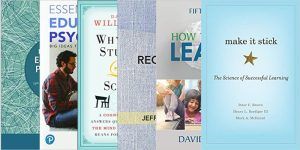 Educational psychology is a problem-solving profession that aims to apply knowledge and theory from psychology to education (Burnham & Phillips, 2019).
Educational psychology is a problem-solving profession that aims to apply knowledge and theory from psychology to education (Burnham & Phillips, 2019).
Optimal outcomes typically involve compromise rather than consensus, reached through open inquiry and recognizing everyone’s input, including teachers, parents, policymakers, and students.
Its value is profound. The educational psychologist’s goal is to improve education, teaching, and learning through “psychologizing” educational experiences (Harris, 2018).
While there is a vast selection of literature on the subject, what follows is a round-up of our favorite books. They offer both a broad and in-depth understanding of this fascinating branch of psychology.
Before you continue, we thought you might like to download these three Positive Psychology Exercises for free. These science-based exercises explore fundamental aspects of positive psychology, including strengths, values, and self-compassion, and will give you the tools to enhance the wellbeing of your clients, students, or employees.
This Article Contains:
10 Best Educational Psychology Books
Educational psychology is an exciting area of study, and there are many excellent books to guide your understanding as a student, professional, or interested reader.
The following books offer various perspectives on existing knowledge and the latest research in this ever-developing discipline.
1. How Children Succeed: Grit, Curiosity, and the Hidden Power of Character – Paul Tough
Paul Tough argues that rather than judging children based on test scores, we should explore and develop their character, degree of optimism, self-control, and perseverance.
Such qualities can drive success into adulthood and are ultimately learnable.
There should be no inevitability to some children failing in their education, but rather a recognition that systems and processes are letting them down and must be addressed.
Find the book on Amazon.
2. How the Brain Learns – David A. Sousa
Educational neuroscientist David Sousa takes us on a journey through the neuroscience and psychology of education in this engaging 5th edition of his book.
Sousa takes the latest research and learnings in education and related fields and translates them into a toolkit of effective and practical activities and strategies for use in the classroom.
New insights in this edition include the latest scientific understanding of how our working memory is involved in learning, the effect of art on child development, and the impact of technology.
Find the book on Amazon.
3. Why Don’t Students Like School? A Cognitive Scientist Answers Questions About How the Mind Works and What It Means for the Classroom – Dan T. Willingham
Written by cognitive scientist Dan Willingham, this book provides insights into educational psychology’s fascinating field and how to apply its lessons inside and outside the classroom.
Along with exploring the cognitive processes engaged in learning, Willingham lays out nine key principles for student engagement, including emotion, narrative structure, context, memory, and routine.
This is a valuable text for teachers, parents, corporate trainers, marketers, or students wishing to understand the field of educational psychology.
Find the book on Amazon.
4. Education Psychology: Developing Learners – Jean Ellis Ormrod, Eric M. Anderman, and Lynley H. Anderman
This book is an essential guide for students on how to apply theoretical concepts to their own learning and to the practice of teaching. It seamlessly blends complex subjects and materials and breaks them down into easily digestible chunks.
The 10th edition contains a clear, engaging, and in-depth focus on learning theory and its application along with details on the latest research in motivation, assessment, and learning.
Real-world examples are provided throughout, along with concrete tools to deliver science-led interventions to children in the classroom.
Find the book on Amazon.
5. How Learning Happens: Seminal Works in Educational Psychology and What They Mean in Practice – Paul A. Kirschner and Carl Hendrick
Paul Kirschner and Carl Hendrick’s recent book offers a collection of some of the best and most impactful research in educational psychology.
The 28 works take the reader on a journey through seminal discoveries and lessons in the field, along with their significance and legacy.
Divided into six sections, chapters explore how the brain works, prerequisites for learning, the support teachers can offer, and the 10 deadly sins of education.
There are many practical and key takeaways for anyone engaged in education or students of educational psychology and the learning sciences.
Find the book on Amazon.
6. Self-Regulation in Education (Ed Psych Insights) – Jeffrey A. Greene
Jeffrey Greene, Associate Professor in Learning Sciences and Psychological Studies at the University of North Carolina, explores the crucial concept of self-regulation in education.
Familiar to many, this important book guides the reader through the theory and assesses its value to teachers, researchers, and policymakers.
Greene explains the concept of self-regulation while placing it within the broader context of educational psychology. Key chapters include the fundamentals behind the approach, its potential for use within education, and its application in the classroom.
Find the book on Amazon.
7. How Children Learn – John Holt
The 50th anniversary edition of this classic work within educational psychology provides us with another opportunity to revisit the groundbreaking work of John Holt.
Having sold over a million copies, How Children Learn contains Holt’s observations that changed the conventional way of thinking about learning.
By recognizing that learning is a natural and innate ability in young children, he argued the importance of using approaches specific to the learner’s age. This includes a significant proportion of contextual and physical–spatial activity-based learning for the youngest children to support development of the required neurological hardware.
Find the book on Amazon.
8. The Absorbent Mind – Maria Montessori
Maria Montessori wrote this timeless classic in response to what she and others regarded as an educational crisis in the United States.
Since its publication, thousands of private schools have adopted the Montessori Method, inspired by her research into a critical stage in child development: the first six years.
This book remains a valuable addition to any student’s knowledge of educational psychology. It is an essential text for those wishing to understand the processes involved in how children learn and the approaches used in many US classrooms today.
Find the book on Amazon.
9. Make It Stick: The Science of Successful Learning – Peter C. Brown, Henry L. Roediger III, and Mark A. McDaniel
Based on the latest cognitive psychology research, this insightful text turns established approaches on their head.
According to this book, many of our existing learning strategies – cramming, rereading, and repetition – provide only short-lived mastery.
Instead, we require novel approaches to make the best use of our memory systems’ strengths and weaknesses, including re-studying only once forgetting has begun, combining learning from multiple disciplines, adding complexity, and self-testing.
Such new strategies not only aid the teacher with their students, but also the learner and the policy maker, bypassing time wasted on counterproductive techniques.
Find the book on Amazon.
10. Essentials of Educational Psychology: Big Ideas to Guide Effective Teaching – Jeanne Ormrod and Brett Jones
This valuable educational psychology textbook is a practical guide to the core concepts essential to this discipline.
Written in an engaging and conversational style, this relatively slim guide contains a comprehensive overview of the key theories and educational implications behind motivation, learning and cognition, classroom management, and assessment in educational psychology.
The text partnered with MyLab Education to offer online tutorials, exercises, videos, and assessments to encourage learning and develop a deeper, more practical understanding.
Find the book on Amazon.
A Reading List for Students
The following list includes books valuable as pre-course reading or part of a broad understanding of educational psychology within a doctoral or master’s syllabus.
They cover the subject’s core topics while exploring closely related disciplines within psychology, learning, and development.
1. Handbook of Educational Psychology – Lyn Corno and Eric M. Anderman
This book is a hugely valuable addition to the library of anyone studying or practicing in education and the learning sciences. While ideal for graduate-level courses, it is essential reading for teachers, policymakers, and those engaged in designing education.
Sponsored by the American Psychological Association, it contains 30 chapters taking the reader through the background of this rich subject before introducing the latest developments in theory and research.
The third edition includes sections on subject matter acquisition, individual differences, sociocultural perspectives on learning, dialogic instruction, and networked learning.
Find the book on Amazon.
2. The Power of Making Thinking Visible: Practices to Engage and Empower All Learners – Ron Ritchhart and Mark Church
This new book from Ron Ritchhart and Mark Church is based on the learnings from Harvard’s Project Zero – a research center dedicated to exploring deep thinking and understanding, intelligence, and education.
The text contains many helpful and practical practices to improve student thinking and learning. Applicable at all levels of education, the authors explain how to use thinking routines to maximum effect in the classroom, encouraging student development and adopting mindsets that make thinking more visible.
Find the book on Amazon.
3. Educational Psychology (Topics in Applied Psychology) – Norah Frederickson, Andy Miller, Tony Cline, Andrea Gulliford, and Susan Birch
The second edition of this well-thought-out book provides a comprehensive guide to the impact of social, developmental, and cognitive psychology on the educational psychologist.
Written with students in mind, it encourages a science-led interdisciplinary approach. Each chapter is divided into learning and behavior, and contains stories, examples, activities, and scenarios to enthuse and instruct the reader.
Crucially, the book provides an appreciation of both the potential for educational psychology and its limitations.
Find the book on Amazon.
4. Frameworks for Practice in Educational Psychology – Barbara Kelly
The second edition of this popular book provides deep insights into new and existing practice frameworks in educational psychology.
New integrated approaches are introduced along with existing models such as the Problem-Solving Framework and the Constructionist Model of Informed and Reasoned Action.
Use this in-depth book to gain practical insight into existing successful approaches and those under development in educational psychology.
Find the book on Amazon.
5. Understanding Child Development – Rosalind Charlesworth
The 10th edition of this essential book includes an excellent balance of real-life anecdotes, short stories, and examples of recent research.
Rosalind Charlesworth explores the development and educational opportunities for children in relation to their sociocultural environment. Existing standards, accreditation, and educational practices are defined and highlighted in each chapter for clear identification.
Other areas covered include assessment, working across cultures, special needs, and early cognitive development activities, adding to the overall subject matter’s breadth and depth.
Find the book on Amazon.
There are some noteworthy, high-impact journals that students will also benefit from reading.
Each of the following journals contains valuable articles on educational psychology and report on the latest research findings and theoretical advances.
Access is typically restricted to those with logins available through their educational institutions:
- British Journal of Educational Psychology
- Educational Psychology in Practice
- Emotional and Behavioral Difficulties
- Journal of School Psychology
- Journal of Child Psychology & Psychiatry
Useful Interventions for Your Sessions
Ritchhart and Church (2020) offer many powerful interventions developed from their work into deep thinking at Harvard University.
The following three examples encourage thinking routines to engage others, own the idea, and take necessary follow-up actions (modified from Ritchhart & Church, 2020):
Ladder of feedback
When a student has finished sufficient work on a project, presenting to a group and receiving feedback can be a valuable exercise.
The group listens to the presentation then uses the following headers as a framework to ask questions and provide feedback:
- Clarify
Ask questions to clarify what is being shared. - Value statements
State what appears to be working well and is strong and engaging in the presentation. - Questions and concerns
Ask questions about what concerns you, what is confusing, or what appears not to be working well. - Suggest
How could the work be improved, changed, added to? - Thank
The presenter thanks the group for the feedback shared.
Peer-to-peer feedback can be incredibly valuable for the group to provide input and the presenter to finalize the work under review.
Leaderless discussion
The group watches a video or reads a text on a subject being studied. Each person writes one or two questions for group discussion.
- One person at a time reads a question and describes its relevance.
- Other members attempt to answer the question concerning the text or video.
- The person who came up with the question then summarizes the discussion.
- When everyone has had equal opportunity to share their questions, the group discusses how the practice has improved their understanding of the work and how their thoughts have changed.
+1 Routine
Having watched a video, listened to a recording, or read a piece of text, the group sits down and individually makes notes on a sheet of paper:
- Recall
For two or three minutes, write a list of details, facts, or lessons based on what was seen or read. - Plus 1
Pass the paper to the right. Taking one or two minutes, the next person adds one new thing to the list. Repeat two or more times. - Review
The paper is returned to the original owner for review. They look through the additions and add any other new points they have identified.
All three interventions provide mechanisms for the individual to challenge their own and others’ thinking and build on their existing knowledge.
4 Handy Assessment Forms
Educational psychologists use several tools for assessment and intervention to support children’s learning and development.
- The Wechsler assessment scales provide a range of educational assessments to measure cognitive abilities in children and adults.
- NEPSY II is used to create tailored assessments, accurate diagnoses, and intervention planning at school and at home.
- The Behavior Rating Inventory of Executive Function assesses behavior at home and in the classroom to score a range of children’s abilities, including those with learning difficulties, brain injuries, depression, and medical conditions.
- The British Ability Scales cognitive assessment is used to assess children’s current intellectual functioning, identify potential interventions, and provide personalized learning.
2 Helpful Apps to Download Today
The following apps are useful downloads for your phone or tablet for either reference purposes or as relaxation aids to promote learning.
Breathe2Relax
This app helps the user reduce symptoms of stress and fear and promotes a calm mental state suitable for learning.
Find the app in the Google Play Store.
Find the app in the Apple App Store.
MoodKit
Moodkit uses CBT as its foundation, and provides users with access to over 200 different interventions to improve mood. Included in the app are journaling templates, reminders, and mood charts.
Find the app in the Apple App Store.
For further reading, Best Apps for Psychologists provides insight into apps that will improve the client outcome.
PositivePsychology.com’s Relevant Resources
Explore some of our many tools and resources to help students manage stress and worry and become better equipped for their education:
- Adopt A Growth Mindset introduces the reader to the concept of neuroplasticity and provides a guide to replace fixed mindset thinking with growth statements.
- G Stands for Goal offers a way to formulate goals for learning, development, and other areas of your life.
- Reflective Questions for Personal Academic Achievement contains questions to prompt students to think about what they are learning, why, and how to improve the process.
- I Love My Classmate is a creative exercise to help students recognize their talents, strengths, and positive traits.
- Learning New Skills encourages learners to reflect on when new skills were learned and help them normalize.
- Learning From My Work helps students learn from their mistakes rather than dwelling on them with feelings of failure.
If you’re looking for more science-based ways to help others enhance their wellbeing, this signature collection contains 17 validated positive psychology tools for practitioners. Use them to help others flourish and thrive.
A Take-Home Message
Every child has the right to an excellent positive education and the right not to be failed by their education system (Tough, 2014). To make sure this doesn’t happen, educational psychologists must be fully equipped to provide the support needed to students, teachers, and policymakers.
Therefore, work continues within educational psychology to ensure policies, processes, and training are in place to ensure that each student’s needs are met irrespective of background or ability.
By integrating the discipline with findings from other areas of study, such as neuroscience and cognitive science, it is possible to build environments dedicated to learning and development (Corno & Anderman, 2016).
Programs such as Harvard’s Making Thinking Visible are challenging the field of education. Using the latest research, while engaging with the collective knowledge of hundreds of teachers, they are delivering fresh approaches to support the challenges associated with learning and thinking (Ritchhart & Church, 2020).
The books within this article will help an interested reader gain a deep understanding of educational psychology as an established field and an awareness of the latest advances driven by exciting new research.
Use our excellent tools to guide your learning while working with others to promote their education and development.
We hope you enjoyed reading this article. Don’t forget to download these three Positive Psychology Exercises for free.
- Brown, P. C., Roediger, H. L., III, & McDaniel, M. A. (2014). Make it stick: The science of successful learning. Belknap Press.
- Burnham, S. & Phillips, N. (2019). What’s happening to education? Five lessons from educational psychology. Solent Psychology.
- Charlesworth, R. (2016). Understanding child development (10th ed.). Cengage Learning.
- Corno, L., & Anderman, E. M. (Eds.) (2016). Handbook of educational psychology. Routledge.
- Frederickson, N., Miller, A., Cline, T., Gulliford, A., & Birch, S. (2015). Educational psychology (Topics in applied psychology) (2nd ed.). Routledge.
- Greene, J. A. (2017). Self-regulation in education (Ed Psych Insights). Routledge.
- Harris, K. R. (2018). Educational psychology: A future retrospective. Journal of Educational Psychology, 110(2), 163–173.
- Holt, J. (2017). How children learn (50th Anniversary ed.). Da Capo Lifelong Books.
- Kelly, B. (2016). Frameworks for practice in educational psychology (2nd ed.). Jessica Kingsley Publishers.
- Kirschner, P. A., & Hendrick, C. (2020). How learning happens: Seminal works in educational psychology and what they mean in practice. Routledge.
- Montessori, M. (2009). The absorbent mind. BN Publishing.
- Ormrod, J. E., & Jones, B. (2018). Essentials of educational psychology: Big ideas to guide effective teaching (5th ed.). Pearson.
- Ormrod, J. E., Anderman, E. M., & Anderman, L. H. (2019). Educational psychology: Developing learners (10th ed.). Pearson.
- Ritchhart, R., & Church, M. (2020). The power of making thinking visible: Practices to engage and empower all learners. Jossey-Bass.
- Sousa, D. A. (2016). How the brain learns (5th ed.). Corwin.
- Tough, P. (2014). How children succeed: Confidence, curiosity and the hidden power of character. Arrow Books.
- Willingham, D. T. (2009). Why don’t students like school? A cognitive scientist answers questions about how the mind works and what it means for the classroom. Jossey-Bass.
Let us know your thoughts
Read other articles by their category
- Body & Brain (50)
- Coaching & Application (57)
- Compassion (26)
- Counseling (51)
- Emotional Intelligence (24)
- Gratitude (18)
- Grief & Bereavement (21)
- Happiness & SWB (40)
- Meaning & Values (26)
- Meditation (20)
- Mindfulness (45)
- Motivation & Goals (45)
- Optimism & Mindset (34)
- Positive CBT (29)
- Positive Communication (20)
- Positive Education (47)
- Positive Emotions (33)
- Positive Leadership (18)
- Positive Parenting (4)
- Positive Psychology (33)
- Positive Workplace (37)
- Productivity (17)
- Relationships (46)
- Resilience & Coping (38)
- Self Awareness (21)
- Self Esteem (38)
- Strengths & Virtues (32)
- Stress & Burnout Prevention (34)
- Theory & Books (46)
- Therapy Exercises (37)
- Types of Therapy (64)
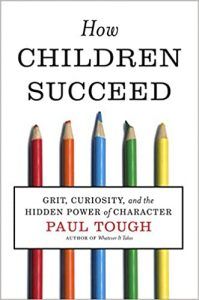
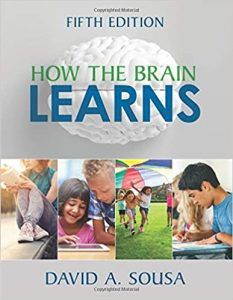
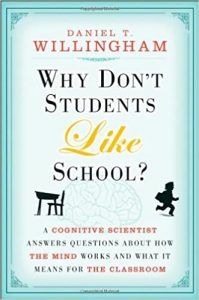
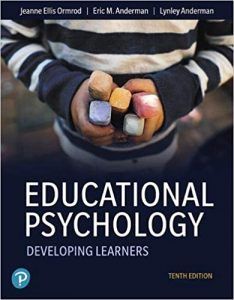
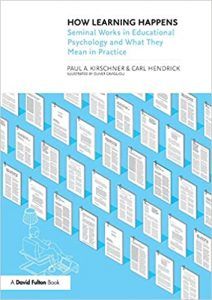
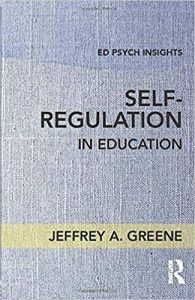
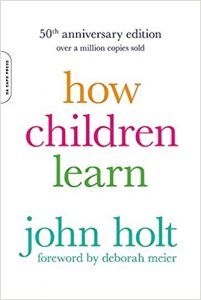
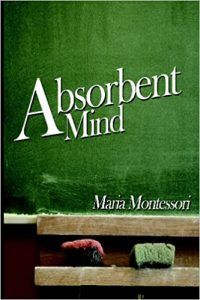
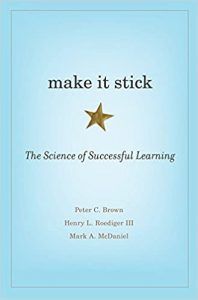
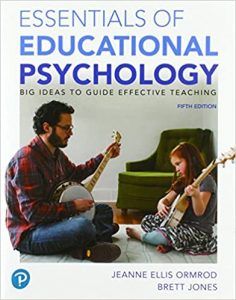
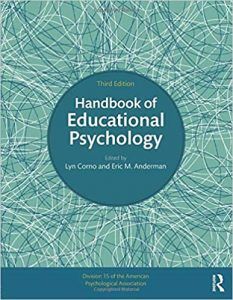
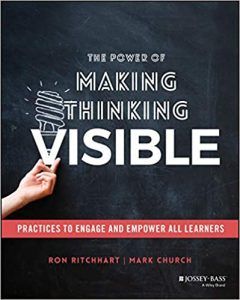
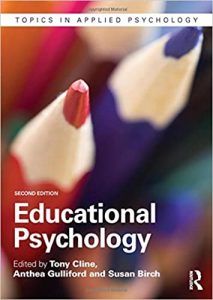
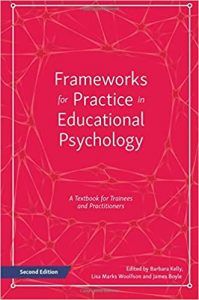
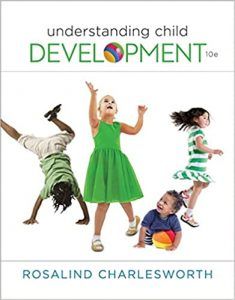


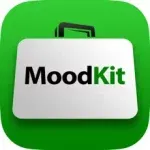
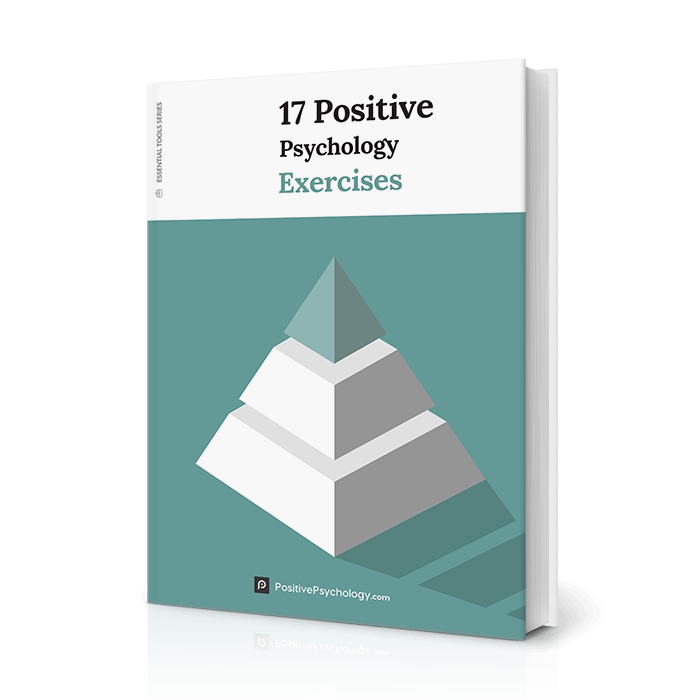


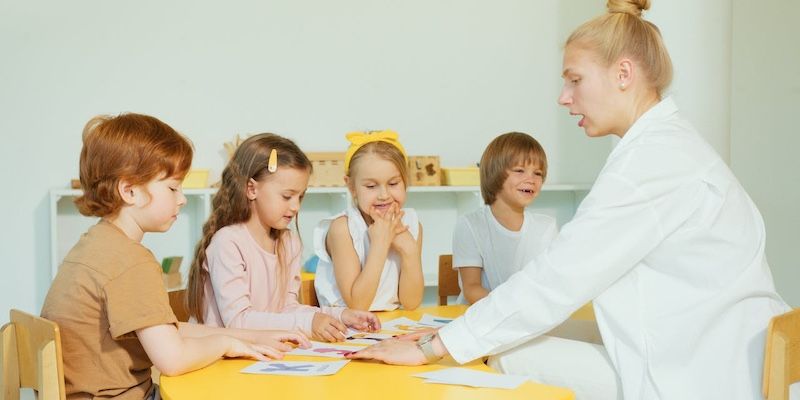

What our readers think
Thank you very much for the information
This content is well-detailed and easy to understand. Thank you for creating a good content!